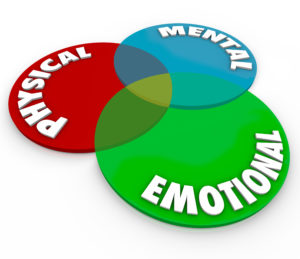SomnusNooze

by Diane Powell, LCSW
People with idiopathic hypersomnia and related disorders live with the constant challenges of having a chronic condition that is not well known and is poorly understood even by researchers. Every day, there are calculations to be made: How am I feeling? How are my meds working – or not? What do I need to accomplish – what’s realistic? How much can I do before sleep is likely to take over?
Plans and goals may have to change, too: What does the future hold for me? Will my symptoms or the effectiveness of my medications change?
It can be very helpful to have a support network, but many people with hypersomnia report hurtful, dismissive attitudes from family and friends. Managing a relationship and/or raising kids presents more challenges and compromises. Some choose not to tell others about their condition, especially at their place of work, and keeping that secret is likely to be extremely stressful.
With all of these issues to cope with, it’s very understandable that people with hypersomnia, like others  with a chronic condition, may sometimes feel depressed and anxious. Stress, frustration, irritability, sadness, and even anger, are not unreasonable reactions. But if these feelings frequently interfere with or prevent your enjoyment of your waking hours, it may be time to think about making an appointment with a psychotherapist.
with a chronic condition, may sometimes feel depressed and anxious. Stress, frustration, irritability, sadness, and even anger, are not unreasonable reactions. But if these feelings frequently interfere with or prevent your enjoyment of your waking hours, it may be time to think about making an appointment with a psychotherapist.
“If I see a therapist, does that mean I’m crazy?”
I’ve been asked this many times. Usually it’s asked in a half-joking tone, but there’s a lot of anxiety behind the question.
The truth is, all kinds of people come to therapy; many have coped very well with other difficult problems in the past and are quite “normal” (however you choose to define that!). People often decide to talk to a therapist because their usual ways of coping aren’t working well for them anymore.
If you are still wavering, consider this: if there is a way to get more support, find better ways to cope, see your problems differently, or to improve your relationships – all of which are possible in therapy – why wouldn’t you explore that? (Please note that if you are feeling hopeless and having suicidal thoughts, it’s important to reach out for treatment right away: call one of the crisis lines listed HERE for help and referrals.)
Having a chronic condition is difficult no matter how “strong” you are. Forget “crazy” – think “smart” and take care of yourself.
“How can therapy help me? What can a therapist say to me?
The best answers to these questions come from two people with IH who have spent time in therapy.
“My whole healing began with three actions: admitting anxiety was impacting my life; calling a therapist and actually going to the appointment; and making a personal commitment to rediscover my confidence, courage and grace.”
 Another says: “Having now been through CBT* [cognitive behavioral therapy]/meditation for my illness [IH], I feel strongly that all of us humans need this, especially those of us with any chronic disease (or any stressor at all, which is everyone…). These are life/coping skills that should be taught starting in childhood and reinforced at every stage of life.”
Another says: “Having now been through CBT* [cognitive behavioral therapy]/meditation for my illness [IH], I feel strongly that all of us humans need this, especially those of us with any chronic disease (or any stressor at all, which is everyone…). These are life/coping skills that should be taught starting in childhood and reinforced at every stage of life.”
There are no guarantees, of course, that one person’s results will be exactly the same as another’s, and doing the work of therapy takes time and effort. But there is also a relief in working with an objective, skilled, and caring professional therapist, knowing that each hour in the therapist’s office is time devoted only to you, in a place where you can speak freely and honestly. A good therapist can help you make real and lasting positive changes.
For further reading:
The Feeling Good Handbook by Dr. David Burns, MD. One of the best and most popular books about cognitive behavioral therapy” (see below).
Full Catastrophe Living: Using the Wisdom of Your Body and Mind to Face Stress, Pain, and Illness, by John Kabat-Zinn. Meditation classes are sometimes based on this book and may be available in your area.
*Cognitive behavioral therapy (CBT) is a form of therapy that is goal-oriented; it involves examining and changing your behavior and patterns of thoughts, with the guidance and coaching of a therapist specially trained in CBT. A number of clinical studies have shown CBT to be effective for many conditions, including depression and anxiety.
Diane Powell is a Licensed Clinical Social Worker who has provided psychotherapy to clients for a wide variety of issues, both in private practice and agency settings. She is currently on the Board of the Hypersomnia Foundation.
January, 2020 Addendum
